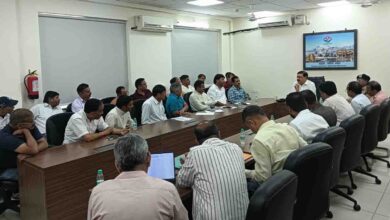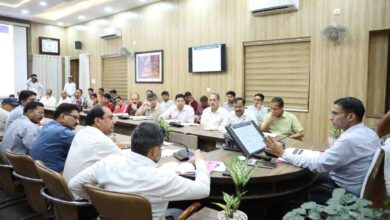‘My fight is an expression of loyalty to zamindars’

My fight is an expression of my loyalty to the ‘zamindars’ (farm owners), on whose well-being our lives hinge on,” explains Mahak Bhatia, 25, who is part of the sit-in by a huge crowd of farmers protesting against the three farm laws, at Delhi’s Singhu Border, “I have to support their cause as the new farm laws will not only affect their income, but will also destabilise the socio-economic system that has worked well till now. And this is the compulsive urge that has brought me and thousand others here.”
The resident of a village of Tohana in Fatehabad, Haryana, and the only son of his mother, Mahak recently lost his job with Cafe Coffee Day in Chandigarh during Covid-triggered economic slowdown and is seeking a “non-farming” employment in Delhi-NCR. However, his primary occupation at present is to actively support the movement against the Central Government over the farm laws.
“I am unemployed and completely broke. I don’t have any means of sustenance of my own, but I am grateful to my zamindars for ensuring my mother and I have no scarcity of food. I have never been a farmer nor I have any farm land, but the landed farmers always take care of us. Now it’s my turn to reciprocate their immense help by raising my voice against the maleficent laws that will diminish the riches of the ‘zamindars’ and in turn affect our lives,” Mahak articulates, feeling assured that his loyalty will be acknowledged.
However, he quickly corrects himself on the word “zamindars”. “They are all farmers but they employ farm workers as there are various other jobs to do in the farms. We live in the same village and we have cordial and fair relations. All are equal in the village. You can witness the cohesion here. All of us who have gathered here come from different backgrounds, castes and regions. But everything here is for everyone,” Mahak clarifies, but hesitates to let the cameraman snap a photo of his puffing on the community hookah. His comrades-in-arms on the carpet, however, encourage him to smoke the pipe for a group photo.
“Even non-farming communities have thrown their weight behind the groundswell of support for the farmers. I will soldier on till the farmers feel safe,” says Mahak.
There are many like Mahak from non-farming communities bogged down in the morass of popular antipathy to the farm reform laws.
In fact, Haryana and Punjab are predominantly agrarian society and almost all the elite of the non-farming communities, whether artists or other professionals, come from farming backgrounds, or have close symbiotic relations with the landed farming community — the farm workers are mostly from Bihar and Uttar Pradesh and some from the grim underbelly of Punjab-Haryana’s rural areas which are remnants of a caste-ridden feudal system.
A farm transporter, one of the elderly among the protesters, claims the new farm laws will affect the ecosystem in Haryana and Punjab whose agriculture survives on State subsidies in the form of high MSP (minimum support price) and well-established Agricultural Produce Market Committees (APMC) mandis.
Sunday, 13 December 2020 | Swarn Kr Anand | New Delhi






